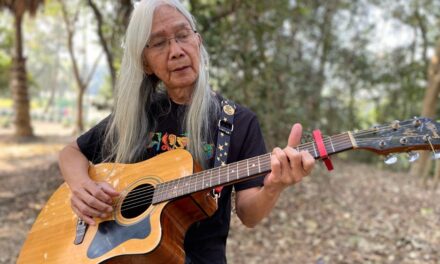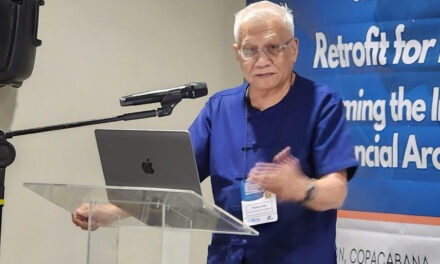Tonle Sap is the heart of Cambodia. Every year, the Mekong River floods and causes the Tonle Sap River to recede and flow into the Tonle Sap Lake, one of the largest freshwater lakes in Southeast Asia. This area has a population of over one million people living on flooded plains and in floating villages, including many Vietnamese people. The Tonle Sap Lake is also recognized as one of the most productive freshwater fisheries on earth.
For many generations, our Khmer forefathers have maintained this legacy of flooded forest resources for young generations. Tonle Sap Lake and its floodplains are important for fish, biodiversity and the environment. It also provides a place for fish to spawn and become a source of food to other fish and countless aquatic animals. Loss of flooded forest is a particular concern for people who are living directly on the Tonle Sap Lake, as it has caused serious environmental problems and local climate change. This has also led to a sharp decline in fish production, significantly affecting biodiversity and some species such as snails, gastropods, birds, mammals and reptiles in particular.
Decrease of the Floodplains Area
One of the most sensitive issues in the news, which led to an investigation into the problem of illegal fishing and flooded forest land-grabbing by the President of the Royal Academy of Cambodia, is about how in recent years more than 80,000 hectares of flooded forestland around the Tonle Sap Lake in the six provinces have been gradually reclaimed by state by the end of April 2022. Later, under sub-national cooperation such as across local authorities as well as fishery communities and some residents around the Tonle Sap Lake, these groups reunited to replant palm trees and flooded forests around those areas, in order to prevent the opportunists from having a chance to invade it again.
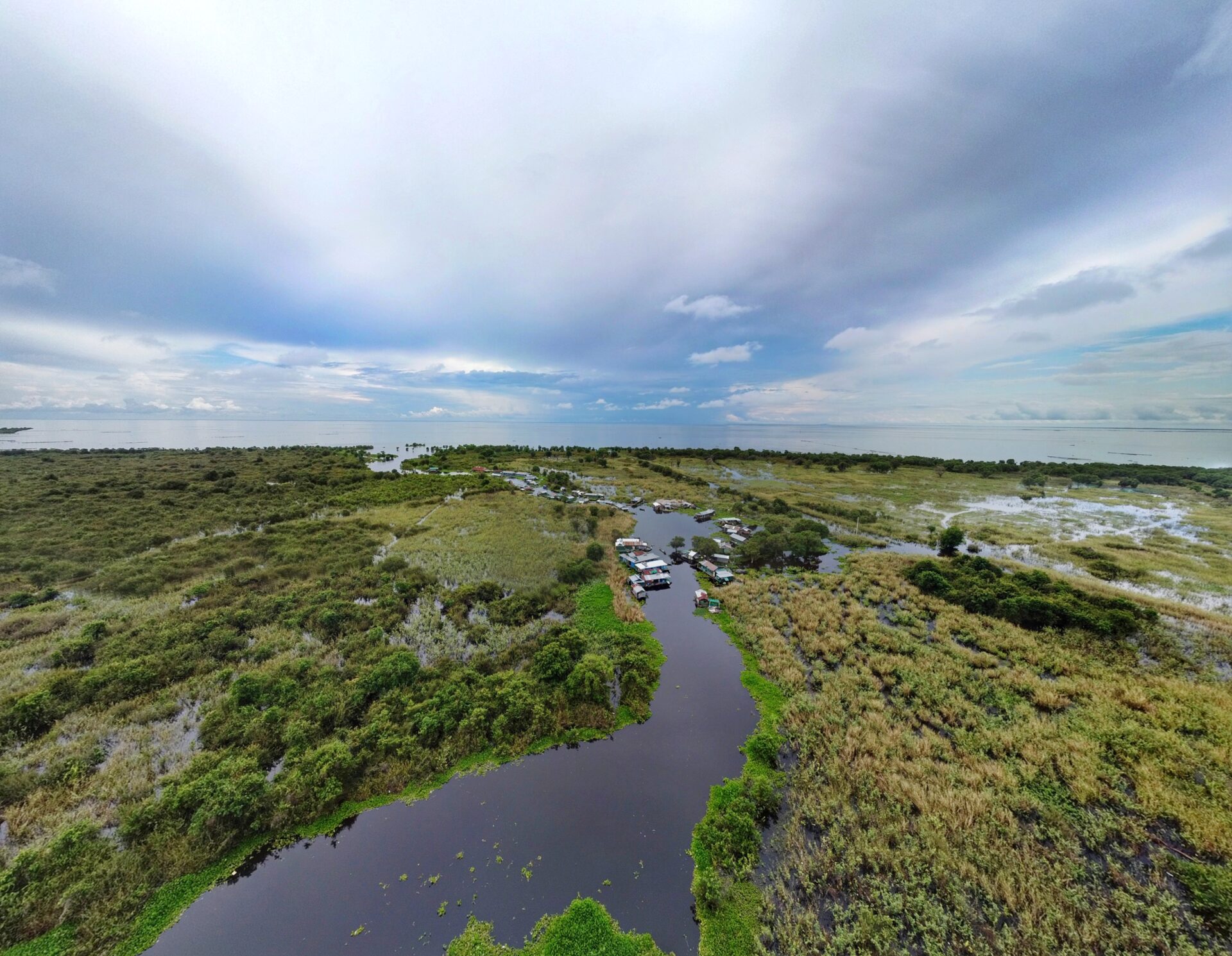
Caption: Anlong Reang Village, Kampong Pou Commune, Krakor District, Pursat Province. 6th September 2021. Photo by: Sun Ridan
According to a local news release on April 29, 2022, the floodplain area of the Tonle Sap Lake has decreased from more than 600,000 hectares since 2002 and just remains over 60,000 hectares in the present.
The people in Cambodia, particularly those working on fisheries were hopeful about Samdech Hun Sen’s words in taking action to confiscate flooded forestland and prevent fishing crime around the Tonle Sap Lake, in which he ordered the cleared land be handed over to the state, and threatened to arrest anyone who violates this order.
He added that: “We must reclaim all the land that has been cleared and there should be no cultivation for spawning grounds and no excuse of the iniquity of our officials and so on.”. This move is very popular with the general public. There is full support even with the knowledge it will have a short-term effect, but the fishery resources will be abundant after the cessation of the flooded forest clearing and this will prevent fishing crime for the next two or three years.
Some people were also hopeful hearing local news regularly updating the situation of flooded forestland, mentioning that it was grabbed by some corrupted officials and then confiscated as public assets by the Cambodian government. The corrupted officials were sent to provincial court for legal action, however, the information on the indictment and punishment of all those officials does not seem to have been released to the public.
Struggles of the Fisheries communities
In 2021, The Royal Government of Cambodia issued a letter to seize the flooded forestland around Tonle Sap, but in May 2022, they decided to issue a new order on returning the land to the people. The quick changes on the regulations has affected the livelihoods of the people who are living directly on the lake and forced them to migrate, abandon their homeland and sell their fishing gear. In another opinion of some fishing communities, the government’s actions do not improve the lives of the affected people, but it is only making their life harder as they can not be as flexible and need more stability.
Some fishery communities said: “We completely support the measurements to confiscate the flooded forestland. If the government can do that, then it would be the best.” The things that the government can do just continue to crack down on serious fishing crimes, so it can return the natural state of fisheries in the area.
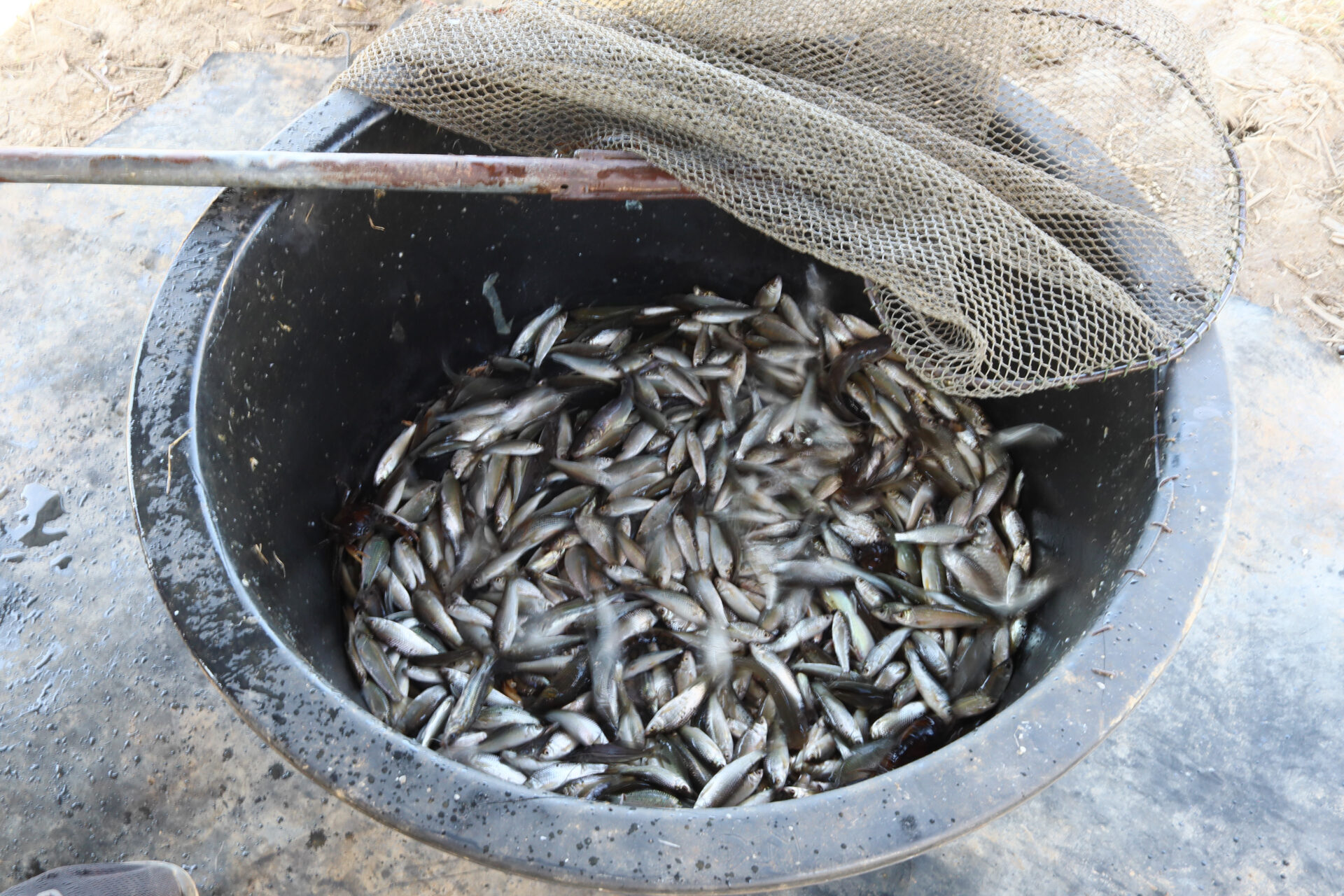
Caption: Sdei Kraom Village, Preaek Luong Commune, Aek Phnom District, Battambang province. November 2021. Photo by: Sun Ridan
Another opinion is that, if the Tonle Sap is full of fish, there is no need to destroy the flooded forest for any farming purposes because it is considered their source of livelihood. Another important thing is that the people will become healthier by eating natural food, spending less money to buy it and will create more local businesses in exchange.
From what the fishery community representatives heard, the government is giving the power to local authorities to identify those who are affected by flooded forestland, and then they will submit the reports to the higher rank government officials which will make the final decision. The communities are mostly concerned about corruption and lack of transparency in the process, adding to the mix that local authorities are usually afraid of high ranking government officials, district governors or central party committees. The most important thing, some of those high ranking government officials are also occupying or involved with those flooded forestland. They wish the government could just restore the flooded forest land to how it was before rather than giving the decision to those corrupted officials and manipulating people to trust their leadership.
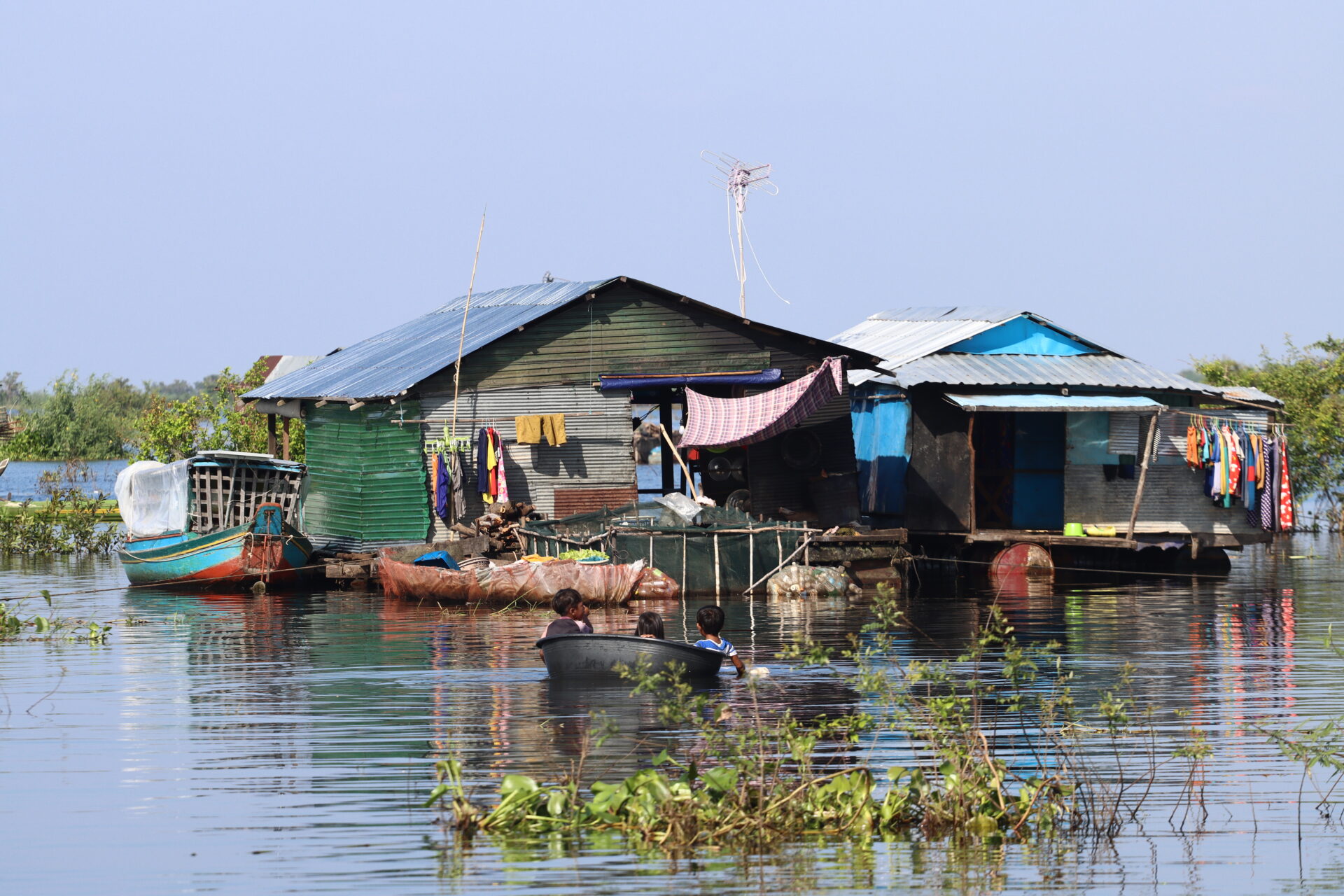
Caption: Anlong Reang Village, Kampong Pou Commune, Krakor District, Pursat Province. 6th September 2021. Photo by: Sun Ridan
The recent fishery decline is causing people to fall into poverty. Fish is now not a main source of income for floating communities anymore. In order to survive, the families needed to resort to farming and planting seasonal vegetables as the extra source of income. One of the widower’s family said that: “most of the poor families here (Battambang province) don’t have much land, Life will be terrifying when the government takes the land back as most of us just get less than half hectare of land.” They hope the government will re-distribute the land back to the local communities.
If the government really wants to restore fishery resources, the first step is to re-enforce the fishery law, and if any commune has any people who are committing fishing crimes, the commune chief must be removed from his/her position and a new commune or district chief must be appointed. Second, if any official commits a crime, they must be tried in a fair and transparent court process.

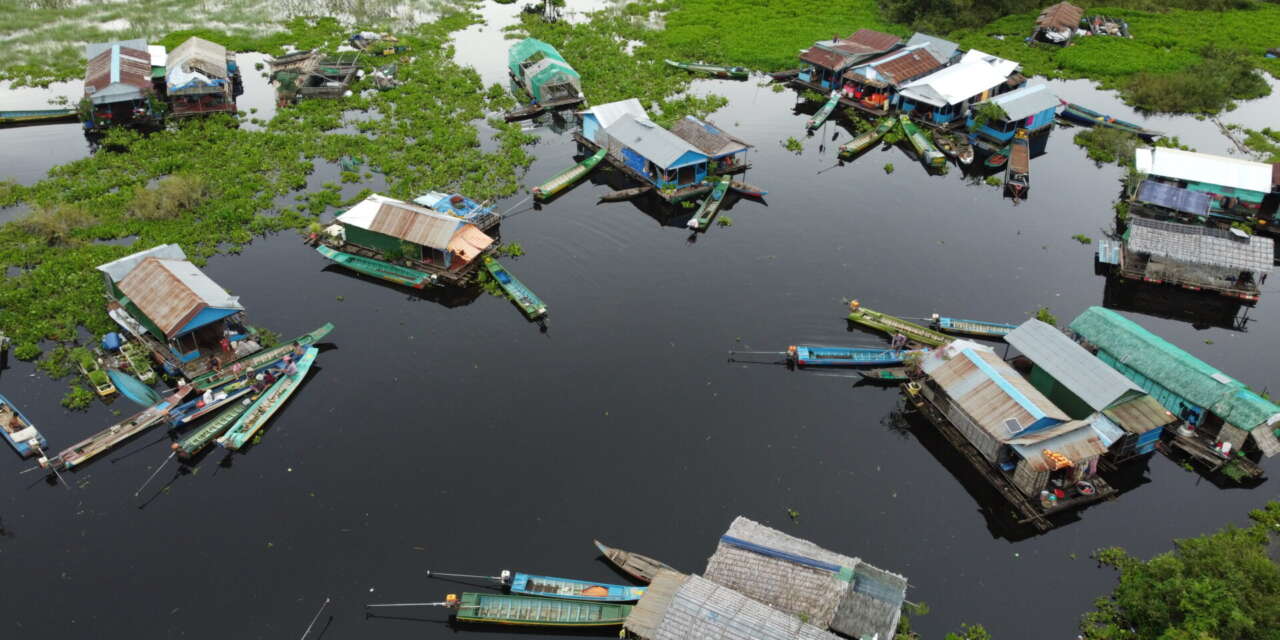
![[JOINT STATEMENT] Laos: States should ask “Where is Sombath?” at upcoming review of human rights record](https://focusweb.org/wp-content/uploads/2021/12/Sombath-034b-440x264.jpeg)
